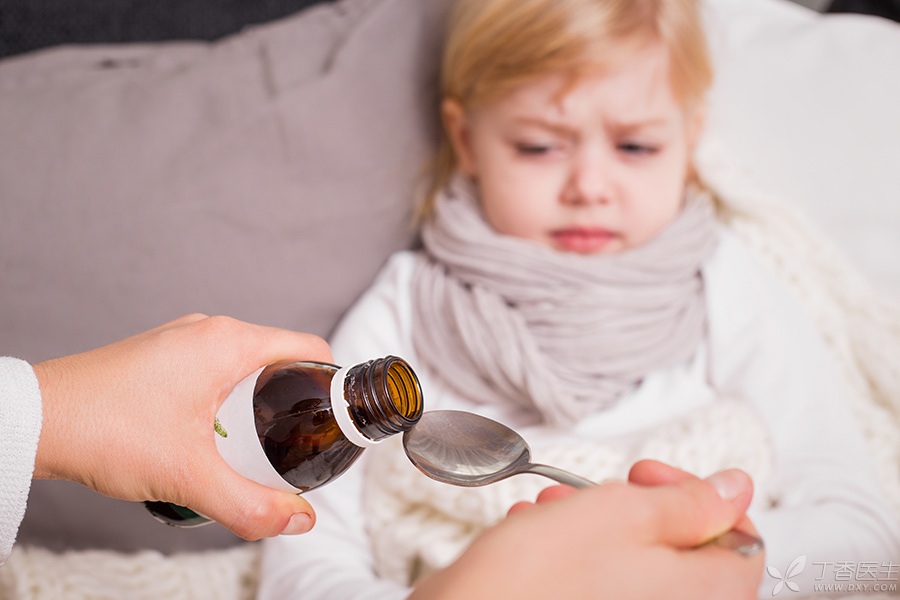
[When the baby coughs, the whole family feels uncomfortable]. When I hear the child coughing, my parents and grandparents feel distressed and try every means to relieve the child’s cough for fear that the baby will have a problem.
However, it is important to know that cough is not necessarily a bad thing. Blind cough relieving for children is risky, especially the following [cough relieving drugs], which not only cannot help the baby but also may pit the baby.
Today, Dr. Clove invited pharmacist Dr. Liu Ziqi to give everyone a detailed steak [cough medicine on the blacklist].
These two kinds of [cough medicine] are forbidden, and there are still many children taking them.
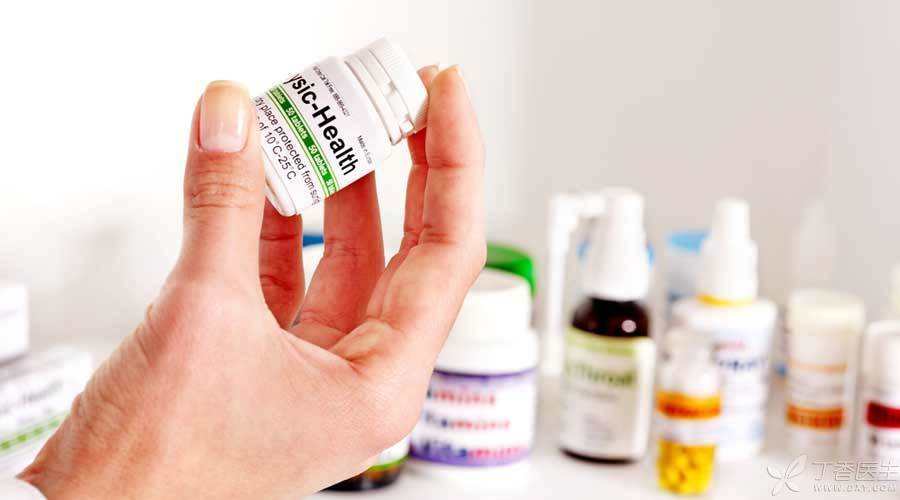
1. Cough medicine containing codeine
At the beginning of last year, the State Food and Drug Administration (CFDA) issued a document requesting pharmaceutical companies to revise the instructions of drugs containing codeine.
One of the key points is: [forbidden for children under 12 years old] [this product is not suitable for children and adolescents aged 12-18 years old suffering from chronic respiratory diseases].
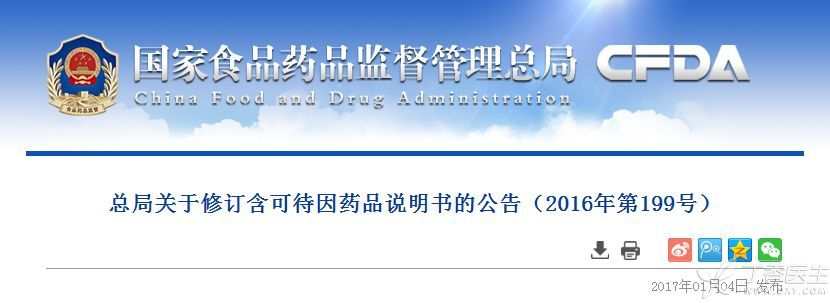
Everyone has heard of morphine. It is a drug. Codeine and morphine are [brothers]. They are both extracted from poppy shells.
Long-term abuse of codeine can cause dependence and addiction. Improper use may lead to some adverse reactions, such as extreme drowsiness, confusion of consciousness, respiratory depression and even life-threatening.
In addition to drugs clearly marked with codeine ingredients, there are also some drugs marked with poppy shells, compound camphor tincture and other ingredients, which also contain similar ingredients of codeine and morphine and have similar side effects.
There are many kinds of antitussive drugs containing such ingredients and their ingredients are complicated. We will make a simple list to help everyone identify them.
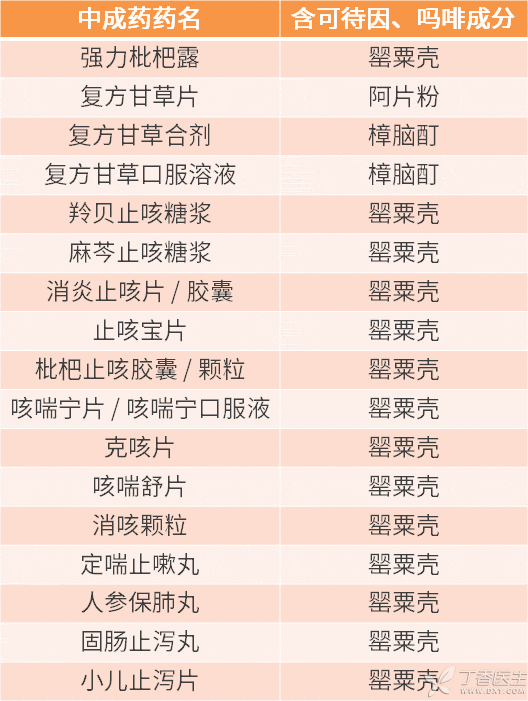
Because the management of proprietary Chinese medicines is not as perfect as that of Western medicines, and the ingredients of proprietary Chinese medicines will not be completely listed in the drug instructions, many doctors will prescribe this medicine and pharmacies will sell it.
After checking our readers’ comments, doctors in many places are still prescribing this cough medicine for their children.
In addition to domestic drugs, Haitao drugs should not be taken lightly, just like the previously highly respected bread Superman, which once contained this ingredient. Although the Japanese government issued a document in the second half of last year to change the formula, it does not rule out that some purchasing agents have previous stocks in their hands, so they should not be careless.
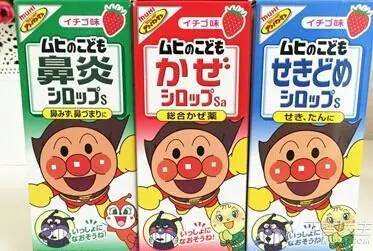
2. Cough medicine containing promethazine
The World Health Organization has even warned that phenazine (promethazine) is forbidden to be used as an antitussive drug in children under 2 years old.
Promethazine has great side effects, which may lead to respiratory depression and even death in children under 2 years old.
Promethazine is a western medicine ingredient, but it is often mixed with traditional Chinese medicine antitussive drugs to use, the most common are:
- Cold Cough Syrup Compound Platycodon grandiflorum Pipa Syrup
There are still many drugs containing this ingredient, not only cough medicine, but also the ingredient list when taking medicine for children.
At present, many proprietary Chinese medicines are secretly mixed with Western medicine ingredients, and they are not suitable for children to take Western medicine ingredients, such as promethazine mentioned here and codeine mentioned above, which are difficult to distinguish, so try not to give children traditional Chinese medicine and proprietary Chinese medicines.
It’s not a bad thing for a child to cough, it really doesn’t need [cough relief]
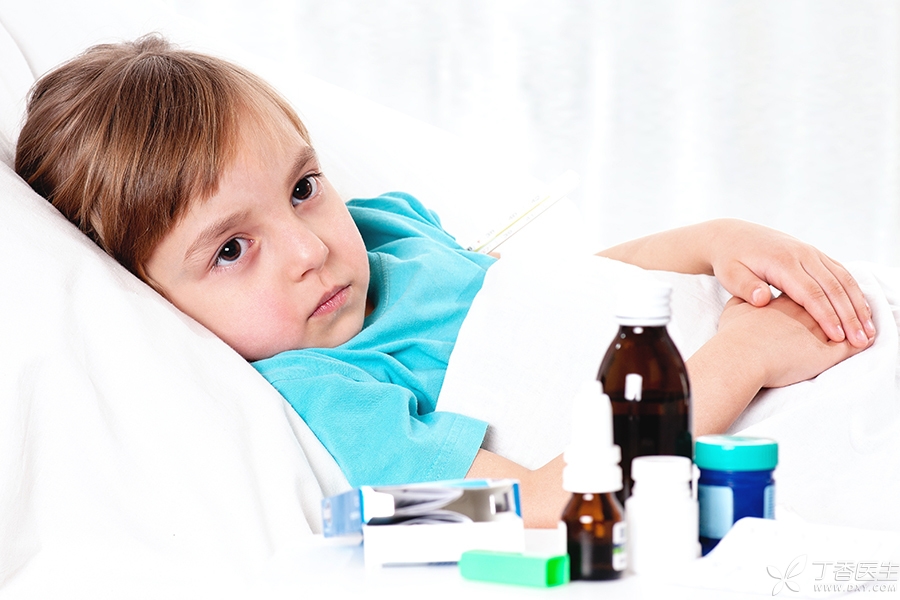
Many parents will ask, is what cough medicine suitable and safe for babies?
If you can, you can’t eat.
Cough, like fever, is not a disease but a symptom. It is a self-protection reaction of the human body, that is to say, cough is not a bad thing.
Cough may be caused not only by pathogens, but also by stimulation of normal air changes, allergy, asthma, tracheal foreign bodies and other reasons.
It is by coughing that children can expel discomfort (foreign bodies, bacteria, viruses or sputum) from the trachea.
Under such circumstances, giving children cough relief is equivalent to creating only [superficial peace], but the actual problem has not been solved.
Many parents take medicine when they see their children coughing, but they have not found the real cause and it is not good to take medicine repeatedly.
Others took medicine all the time and took a long time to go to the hospital, only to find that their illness had become serious.
Some parents will worry: What if the child coughs up pneumonia if he does not stop coughing?
It should be stressed here that cough will not cause pneumonia.
Pneumonia is caused by pathogens, and cough is only a symptom, may also be caused by pathogens. There is no direct connection between cough and pneumonia, cough is not necessarily pneumonia, pneumonia does not necessarily have cough symptoms, there is no need to force the connection.
Children’s cough is uncomfortable, which can be relieved in this way.
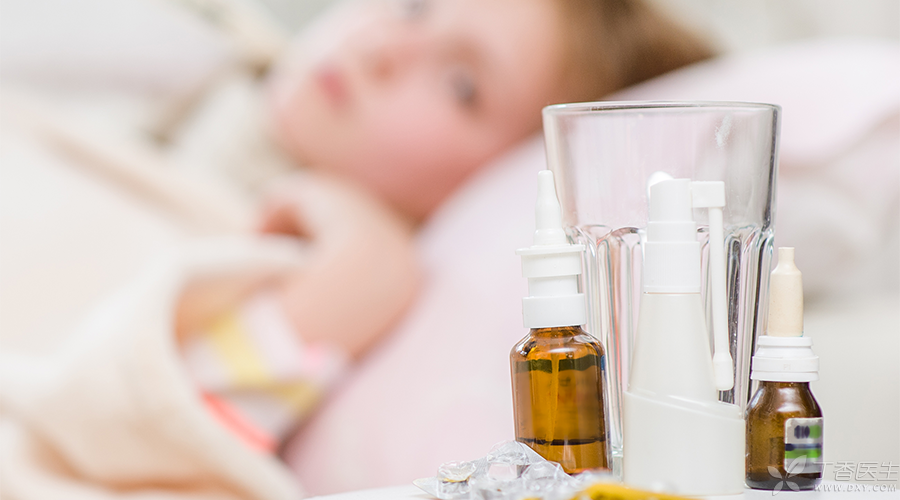
If the child’s cough is not serious, parents can help the baby relieve it at home:
The humidifier can be used to adjust the indoor humidity, and the appropriate humidity range is about 55%.
Children over one year old can take 2 ~ 5 milliliters of honey orally to relieve cough, but do not use it too frequently. Honey with high sugar content is easy to inhibit appetite.
Babies under 6 months old can eat more breast milk and dilute sputum by increasing liquid intake to relieve cough symptoms.
Babies fed artificially for more than 6 months can drink some warm boiled water while meeting the milk consumption. The reason is the same as above.
If the child coughs for too long (more than 2 weeks), which is serious enough to affect normal eating and sleep, or accompanied by other obvious discomfort, it is recommended to seek medical treatment in time.
In addition to cough, don’t rush to relieve cough first, what we need to do is to observe the child’s condition and help find out the cause.
Treat children’s cough rationally and don’t be too anxious. Cough is really not terrible.
